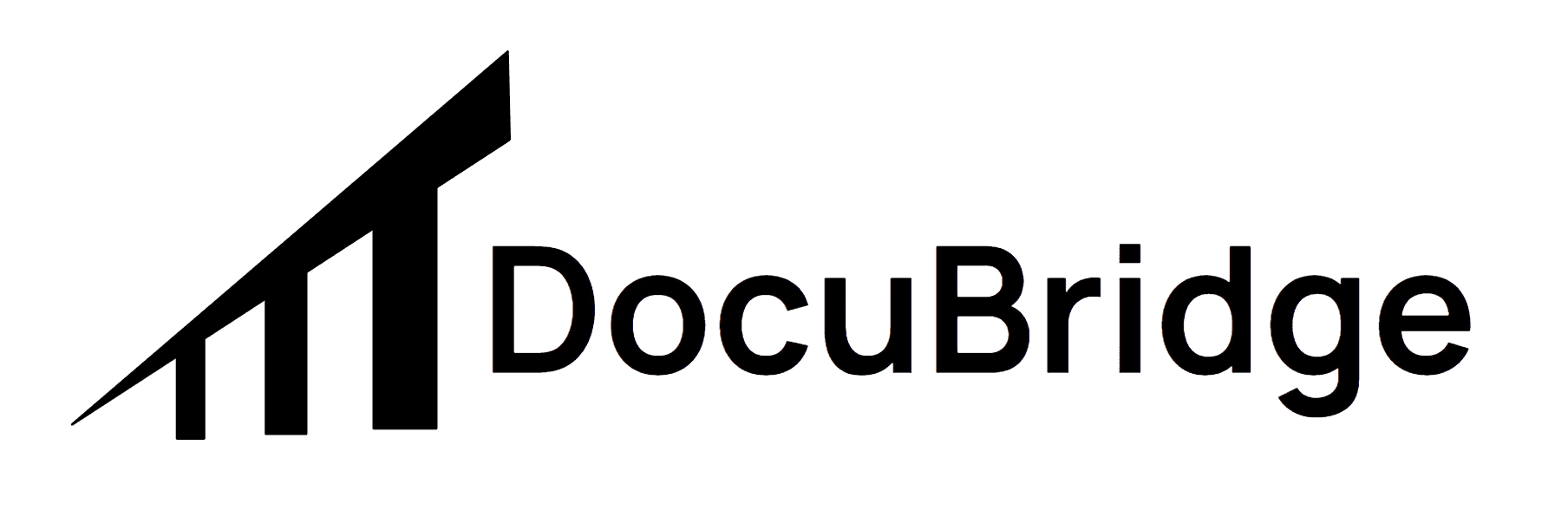How to use AI for Due Diligence in Private Equity
How to use AI for Due Diligence in Private Equity

DocuBridge team
•
Nov 25, 2024




The Challenges of Due Diligence in Private Equity
When you decided to pursue a career in private equity, was due diligence the first thing that came to mind? Most likely not. For most, the appeal lies in the thrill of driving transformative deals, creating value, and navigating complex, high-stakes decisions—not spending hours wading through financial documents and crunching numbers. Yet, as every private equity professional knows, due diligence is the foundation of any successful investment, ensuring opportunities align with your firm criteria and mitigate risks. So why does a process so critical often feel so draining and demotivating?
It starts with the overwhelming volume of work. Analysts are tasked with searching through vast amounts of fragmented documents, including financial statements, contracts, and operational data—often manually and under tight deadlines—making the process feel tedious, time-consuming, and disconnected from the strategic appeal of the industry. With the competitive nature of private equity, the process leaves teams overwhelmed and under significant pressure, decreasing productivity and increasing the risk of overlooking critical information and human-prone errors.
The New Standard for Due Diligence
As artificial intelligence (AI) emerges, advanced technologies and algorithms have redefined the nature of due diligence into a more efficient, accurate, and strategically focused process. Here are three ways AI is transforming due diligence workflows:
1. Automating Manual Processes
Traditional due diligence relies heavily on manual workflows, requiring analysts to sift through vast amounts of financial documents, contracts, and operational data. Instead of continuing the outdated process, AI tools can accelerate financial modeling and analyses, extracting key data points, flagging anomalies, and formatting information in minutes.
2. Integrating and Analyzing Fragmented Data
Financial data in due diligence often comes from diverse, unstructured sources, including financial statements, market research, and legal filings stored within confidential information memoranda (CIMs) or data rooms. These fragmented datasets create significant challenges, as integrating them into a cohesive analysis has traditionally been tedious. By consolidating and standardizing data across multiple sources into a single, accessible platform, AI enables teams to extract actionable insights quickly while providing a comprehensive view of the target company for informed decision-making.
3. Delivering Predictive Insights for Strategic Decision-Making
Beyond analyzing financial data, firms can utilize machine learning algorithms to generate personalized insights based on firm internal data and predict potential risks and opportunities, such as operational inefficiencies or future market shifts. For instance, AI can model revenue performance across various scenarios, enabling teams to make proactive, data-driven decisions. These predictive capabilities strengthen risk management and investment decisions, positioning firms to achieve better outcomes in the competitive landscape.
By automating tasks, integrating data, and offering predictive analytics, AI transforms due diligence into a streamlined, insight-driven process, enabling firms to close deals faster, mitigate risks, and maximize value creation.
Challenges of Adoption
Despite its promising advantages, adopting AI solutions presents several challenges, including high initial investment, integration with legacy systems, and data quality and security concerns.
Data Quality and Reliability: The AI performance relies on the data quality. Fragmented, inconsistent, or incomplete datasets can compromise the accuracy and reliability of AI-driven insights, limiting their potential benefits and undermining decision-making processes.
Integration with Legacy Systems: Seamlessly incorporating AI into existing workflows and legacy tools often requires significant technical effort, creating additional complexity and adding to overall implementation costs.
Security and Compliance: Due diligence involves handling sensitive financial and operational data, which must be safeguarded against breaches while adhering to strict regulatory compliance standards.
Financial Investment: The cost of developing and implementing a custom AI platform can be substantial, particularly for smaller firms with limited resources, creating a significant barrier to entry.
By proactively addressing these challenges, private equity firms can unlock transformative potential with established criteria, streamlining their due diligence processes and achieving measurable gains in speed, accuracy, and strategic decision-making.
Process of Adoption
Now that your firm is ready to explore AI solutions, adopting a structured approach is essential for ensuring a successful investment. Focusing on the following three steps can streamline the process and maximize the value of AI solutions:
1. Assess Organizational Needs
Before implementing AI, it’s vital to identify the specific pain points in your current due diligence process. Analyze areas where inefficiencies exist, such as fragmented data handling, manual data entry and formatting, or delayed risk analysis. Pinpointing these challenges will help define your objectives and ensure that the chosen AI tools address your unique requirements. This initial assessment provides a roadmap for integrating technology that aligns with your priorities and goals.
2. Choose the Right AI Tools and Provide Training Support
Selecting the right AI solution is critical. Look for platforms designed for private equity workflow, with capabilities such as automating repetitive tasks, consolidating fragmented data, and generating actionable insights. Ensure that the tools seamlessly integrate with your existing systems, minimizing disruption and allowing teams to maintain their current workflows while enhancing efficiency. Once the tools are in place, invest in comprehensive training to ease the transition process and maximize the solution adoption.
3. Start Small and Scale Gradually
Rather than overhauling the entire due diligence process at once, start by applying AI to specific, high-impact areas. For instance, you can begin with automating document reviews or integrating data from CIMs and data rooms. Evaluate the results of these initial implementations and gather feedback from your team. Use these insights to refine the process and demonstrate the value of AI to stakeholders. Once the pilot phase proves successful, gradually expand the solution to encompass more aspects of due diligence, scaling adoption at a pace that aligns with your capacity and objectives.
By focusing on assessing organizational needs, choosing the right tools, and scaling gradually, private equity firms can overcome the challenges of AI adoption. These approaches establish a smoother integration, enhance the team's confidence, and set the stage for leveraging innovative solutions like DocuBridge to revolutionize the due diligence process.
Ready for Adoption?
At DocuBridge, we understand the challenges of adopting AI for due diligence and have designed our platform to address them head-on. Our solution automates financial modeling and due diligence directly within Excel, seamlessly integrating with your specific data sources— CIMs, data rooms, QuickBooks, or other data sources. By consolidating fragmented datasets into a single, actionable platform, we eliminate inefficiencies like manual data entry, tedious formatting, and data integration bottlenecks, allowing your team to focus on strategic decision-making.
We recognize that concerns about cost, integration, data quality, and security can make the process of AI adoption feel daunting. To address these challenges, we have built DocuBridge on the following three core values:
Security and Compliance: As a SOC 2-compliant platform, we follow the latest security standards, including robust encryption and strict access controls, to protect sensitive financial information and ensure compliance with industry regulations.
Human in the Loop: Our human-in-the-loop methodology ensures that AI enhances your team workflows rather than replaces them, empowering analysts to focus on high-value tasks.
Customer Obsession: We provide personalized training and seamless workflow integration to guarantee a smooth transition with minimal disruption. Customizing our platform based on your unique requirements and insights, we deliver a solution that achieves impactful results.
At DocuBridge, we are committed to accelerating the due diligence process and helping your team achieve greater efficiency with every step. If you are interested in discovering how DocuBridge can streamline your due diligence process and save your team valuable time on manual tasks, feel free to reach out to our founders directly at dhruv@docubridge.ai (CEO) and arnav@docubridge.ai (CTO). We love to help you transform your workflows and achieve greater efficiency.
The Challenges of Due Diligence in Private Equity
When you decided to pursue a career in private equity, was due diligence the first thing that came to mind? Most likely not. For most, the appeal lies in the thrill of driving transformative deals, creating value, and navigating complex, high-stakes decisions—not spending hours wading through financial documents and crunching numbers. Yet, as every private equity professional knows, due diligence is the foundation of any successful investment, ensuring opportunities align with your firm criteria and mitigate risks. So why does a process so critical often feel so draining and demotivating?
It starts with the overwhelming volume of work. Analysts are tasked with searching through vast amounts of fragmented documents, including financial statements, contracts, and operational data—often manually and under tight deadlines—making the process feel tedious, time-consuming, and disconnected from the strategic appeal of the industry. With the competitive nature of private equity, the process leaves teams overwhelmed and under significant pressure, decreasing productivity and increasing the risk of overlooking critical information and human-prone errors.
The New Standard for Due Diligence
As artificial intelligence (AI) emerges, advanced technologies and algorithms have redefined the nature of due diligence into a more efficient, accurate, and strategically focused process. Here are three ways AI is transforming due diligence workflows:
1. Automating Manual Processes
Traditional due diligence relies heavily on manual workflows, requiring analysts to sift through vast amounts of financial documents, contracts, and operational data. Instead of continuing the outdated process, AI tools can accelerate financial modeling and analyses, extracting key data points, flagging anomalies, and formatting information in minutes.
2. Integrating and Analyzing Fragmented Data
Financial data in due diligence often comes from diverse, unstructured sources, including financial statements, market research, and legal filings stored within confidential information memoranda (CIMs) or data rooms. These fragmented datasets create significant challenges, as integrating them into a cohesive analysis has traditionally been tedious. By consolidating and standardizing data across multiple sources into a single, accessible platform, AI enables teams to extract actionable insights quickly while providing a comprehensive view of the target company for informed decision-making.
3. Delivering Predictive Insights for Strategic Decision-Making
Beyond analyzing financial data, firms can utilize machine learning algorithms to generate personalized insights based on firm internal data and predict potential risks and opportunities, such as operational inefficiencies or future market shifts. For instance, AI can model revenue performance across various scenarios, enabling teams to make proactive, data-driven decisions. These predictive capabilities strengthen risk management and investment decisions, positioning firms to achieve better outcomes in the competitive landscape.
By automating tasks, integrating data, and offering predictive analytics, AI transforms due diligence into a streamlined, insight-driven process, enabling firms to close deals faster, mitigate risks, and maximize value creation.
Challenges of Adoption
Despite its promising advantages, adopting AI solutions presents several challenges, including high initial investment, integration with legacy systems, and data quality and security concerns.
Data Quality and Reliability: The AI performance relies on the data quality. Fragmented, inconsistent, or incomplete datasets can compromise the accuracy and reliability of AI-driven insights, limiting their potential benefits and undermining decision-making processes.
Integration with Legacy Systems: Seamlessly incorporating AI into existing workflows and legacy tools often requires significant technical effort, creating additional complexity and adding to overall implementation costs.
Security and Compliance: Due diligence involves handling sensitive financial and operational data, which must be safeguarded against breaches while adhering to strict regulatory compliance standards.
Financial Investment: The cost of developing and implementing a custom AI platform can be substantial, particularly for smaller firms with limited resources, creating a significant barrier to entry.
By proactively addressing these challenges, private equity firms can unlock transformative potential with established criteria, streamlining their due diligence processes and achieving measurable gains in speed, accuracy, and strategic decision-making.
Process of Adoption
Now that your firm is ready to explore AI solutions, adopting a structured approach is essential for ensuring a successful investment. Focusing on the following three steps can streamline the process and maximize the value of AI solutions:
1. Assess Organizational Needs
Before implementing AI, it’s vital to identify the specific pain points in your current due diligence process. Analyze areas where inefficiencies exist, such as fragmented data handling, manual data entry and formatting, or delayed risk analysis. Pinpointing these challenges will help define your objectives and ensure that the chosen AI tools address your unique requirements. This initial assessment provides a roadmap for integrating technology that aligns with your priorities and goals.
2. Choose the Right AI Tools and Provide Training Support
Selecting the right AI solution is critical. Look for platforms designed for private equity workflow, with capabilities such as automating repetitive tasks, consolidating fragmented data, and generating actionable insights. Ensure that the tools seamlessly integrate with your existing systems, minimizing disruption and allowing teams to maintain their current workflows while enhancing efficiency. Once the tools are in place, invest in comprehensive training to ease the transition process and maximize the solution adoption.
3. Start Small and Scale Gradually
Rather than overhauling the entire due diligence process at once, start by applying AI to specific, high-impact areas. For instance, you can begin with automating document reviews or integrating data from CIMs and data rooms. Evaluate the results of these initial implementations and gather feedback from your team. Use these insights to refine the process and demonstrate the value of AI to stakeholders. Once the pilot phase proves successful, gradually expand the solution to encompass more aspects of due diligence, scaling adoption at a pace that aligns with your capacity and objectives.
By focusing on assessing organizational needs, choosing the right tools, and scaling gradually, private equity firms can overcome the challenges of AI adoption. These approaches establish a smoother integration, enhance the team's confidence, and set the stage for leveraging innovative solutions like DocuBridge to revolutionize the due diligence process.
Ready for Adoption?
At DocuBridge, we understand the challenges of adopting AI for due diligence and have designed our platform to address them head-on. Our solution automates financial modeling and due diligence directly within Excel, seamlessly integrating with your specific data sources— CIMs, data rooms, QuickBooks, or other data sources. By consolidating fragmented datasets into a single, actionable platform, we eliminate inefficiencies like manual data entry, tedious formatting, and data integration bottlenecks, allowing your team to focus on strategic decision-making.
We recognize that concerns about cost, integration, data quality, and security can make the process of AI adoption feel daunting. To address these challenges, we have built DocuBridge on the following three core values:
Security and Compliance: As a SOC 2-compliant platform, we follow the latest security standards, including robust encryption and strict access controls, to protect sensitive financial information and ensure compliance with industry regulations.
Human in the Loop: Our human-in-the-loop methodology ensures that AI enhances your team workflows rather than replaces them, empowering analysts to focus on high-value tasks.
Customer Obsession: We provide personalized training and seamless workflow integration to guarantee a smooth transition with minimal disruption. Customizing our platform based on your unique requirements and insights, we deliver a solution that achieves impactful results.
At DocuBridge, we are committed to accelerating the due diligence process and helping your team achieve greater efficiency with every step. If you are interested in discovering how DocuBridge can streamline your due diligence process and save your team valuable time on manual tasks, feel free to reach out to our founders directly at dhruv@docubridge.ai (CEO) and arnav@docubridge.ai (CTO). We love to help you transform your workflows and achieve greater efficiency.

